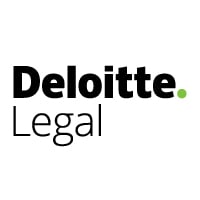

Legal and corporate affairs director | EF Solare Italia



Amalia Muollo
Legal and corporate affairs director | EF Solare Italia
Team size: 10-12
How do you approach managing legal aspects during periods of instability or crises, and how does your legal strategy align with the broader business strategy to ensure the organisation’s resilience?
Managing legal aspects in a fast-paced and evolving business such as renewable energy comes with many challenges. To pursue a successful legal strategy, we must adapt to an ever-changing legal framework, where courts play a key role in filling in the gaps of policymaking. In this context, resilience must be embedded in the strategy rather than being its final goal.
I joined EF Solare Italia exactly one year ago, bringing over 18 years of experience in administrative and energy law, gained both in top-tier law firms and in-house roles in the renewables sector.
From the outset, my priority was to reorganise the legal team and integrate it more closely with the business, especially with development, ESG, finance, and operations. The legal department became a true business partner — anticipating risks, identifying regulatory bottlenecks, and helping the company navigate complex legal landscapes with agility and strategic foresight. In a market frequently impacted by regulatory uncertainty, I focused on aligning legal strategy with business resilience, improving internal governance, and supporting our growth with proactive legal risk management.
In parallel, I renewed EF Solare’s external legal panel by selecting firms with top-tier technical expertise in the energy sector. I also introduced a model of rotating secondments from these firms into the in-house legal team, which has allowed us to diversify our capabilities, strengthen collaboration, and enhance responsiveness across all workstreams.
We work on different levels to ensure compliance and promote effective regulation, one ruling at a time.
What are the major cases or transactions you have been involved in recently?
2025 has seen us involved in two major transactions shaping EF Solare and the Italian energy ecosystem. First, the €2.2 billion project refinancing for the restructuring of the group’s €1.3 billion debt and unlocking resources to support EF Solare’s ambitious development strategy. A non-recourse project finance agreement was signed with a pool of twelve leading Italian and European banks. This was among the most relevant and complex financing operations in the Italian energy landscape this year.
Second, we led the legal side of the due diligence and preparatory work for the integration of EF Solare with Sorgenia, and the reorganisation of the new group’s shareholder structure. Although not structured as a merger, the integration process is of paramount strategic importance and represents a milestone for the national energy market.
In addition, we executed multiple M&A and co-development deals for ready-to-build assets and supported permitting and construction phases across Italy and Spain — maintaining EF Solare’s leadership as the country’s largest PV operator.
What measures has your company taken to embed sustainability practices into its core business operations, and how does the role of the general counsel contribute to driving and ensuring sustainable practices within the company?
EF Solare has embedded sustainability into its governance system. Our internal control framework adopts an integrated approach to align business targets with transparency and effectiveness. The company’s Organisation, Management and Control Model under Legislative Decree 231/2001, alongside our Code of Ethics, plays a central role in promoting a culture of legality and responsibility. The General Counsel and legal team actively contribute to these pillars, ensuring that sustainability is not only a value, but also a legal and operational commitment. In 2025, we conducted company-wide training on the updated 231 model to strengthen awareness and compliance.
As a company wholly focused on solar energy, sustainability is not only our business model — it is our strategic compass. I ensure that ESG commitments are translated into binding contractual and governance obligations, especially in finance and procurement. We integrate EU taxonomy criteria and green finance standards in all key transactions.
How do you prioritise diversity and inclusion within your legal department, and what initiatives have you implemented to foster a more inclusive and equitable work environment?
Building a diverse, open and inclusive legal team has been a central value since I joined EF Solare. I believe that a team with different personal backgrounds and professional perspectives is essential for innovation, problem-solving, and resilience.
In our team, we consciously value heterogeneity of identities and experiences, ensuring a respectful, collaborative and authentic work environment.
We have actively built a legal function that reflects this vision, where all voices are heard and respected. This includes inclusive hiring practices, mentoring opportunities, and a leadership style rooted in empathy, transparency, and equity.
What are the main trends that are salient in your country currently?
The transformation underway in the Italian power sector is reshaping the national landscape, pushing for security of supply, sustainability, and unprecedented levels of investment. However, regulatory bottlenecks still constrain the full potential of this transformation. In parallel, international tensions and geopolitical risk are affecting both public and private sectors. In this scenario, constructive engagement between institutions and industry is crucial to ensure social cohesion, legal certainty and equitable development.